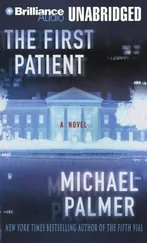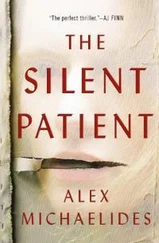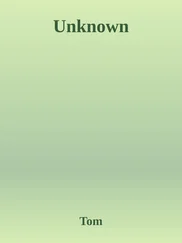Michael Ondaatje - The English Patient
Здесь есть возможность читать онлайн «Michael Ondaatje - The English Patient» весь текст электронной книги совершенно бесплатно (целиком полную версию без сокращений). В некоторых случаях можно слушать аудио, скачать через торрент в формате fb2 и присутствует краткое содержание. Жанр: Старинная литература, на русском языке. Описание произведения, (предисловие) а так же отзывы посетителей доступны на портале библиотеки ЛибКат.
- Название:The English Patient
- Автор:
- Жанр:
- Год:неизвестен
- ISBN:нет данных
- Рейтинг книги:4 / 5. Голосов: 1
-
Избранное:Добавить в избранное
- Отзывы:
-
Ваша оценка:
- 80
- 1
- 2
- 3
- 4
- 5
The English Patient: краткое содержание, описание и аннотация
Предлагаем к чтению аннотацию, описание, краткое содержание или предисловие (зависит от того, что написал сам автор книги «The English Patient»). Если вы не нашли необходимую информацию о книге — напишите в комментариях, мы постараемся отыскать её.
The English Patient — читать онлайн бесплатно полную книгу (весь текст) целиком
Ниже представлен текст книги, разбитый по страницам. Система сохранения места последней прочитанной страницы, позволяет с удобством читать онлайн бесплатно книгу «The English Patient», без необходимости каждый раз заново искать на чём Вы остановились. Поставьте закладку, и сможете в любой момент перейти на страницу, на которой закончили чтение.
Интервал:
Закладка:
No, said Hana, laughing.
Paintings of her all over Florence. Died of consumption at twenty-three. He made her famous with Le Stanze per la Giostra and then Botticelli painted scenes from it. Leonardo painted scenes from it. Poliziano would lecture every day for two hours in Latin in the morning, two hours in Greek in the afternoon. He had a friend called Pico della Mirandola, a wild socialite who suddenly converted and joined Savonarola.
That was my nickname when I was a kid. Pico .
Yes, I think a lot happened here. This fountain in the wall. Pico and Lorenzo and Poliziano and the young Michelangelo. They held in each hand the new world and the old world. The library hunted down the last four books of Cicero. They imported a giraffe, a rhinoceros, a dodo. Toscanelli drew maps of the world based on correspondence with merchants. They sat in this room with a bust of Plato and argued all night.
And then came Savonarola’s cry out of the streets: “ Repentance! The deluge is coming! “ And everything was swept away—free will, the desire to be elegant, fame, the right to worship Plato as well as Christ. Now came the bonfires—the burning of wigs, books, animal hides, maps. More than four hundred years later they opened up the graves. Pico’s bones were preserved. Poliziano’s had crumbled into dust.
Hana listened as the Englishman turned the pages of his commonplace book and read the information glued in from other books—about great maps lost in the bonfires and the burning of Plato’s statue, whose marble exfoliated in the heat, the cracks across wisdom like precise reports across the valley as Poliziano stood on the grass hills smelling the future. Pico down there somewhere as well, in his grey cell, watching everything with the third eye of salvation.
He poured some water into a bowl for the dog. An old mongrel, older than the war.
He sat down with the carafe of wine the monks from the monastery had given Hana. It was Hana’s house and he moved carefully, rearranging nothing. He noticed her civilisation in the small wildflowers, the small gifts to herself. Even in the overgrown garden he would come across a square foot of grass snipped down with her nurse’s scissors. If he had been a younger man he would have fallen in love with this.
He was no longer young. How did she see him? With his wounds, his unbalance, the grey curls at the back of his neck. He had never imagined himself to be a man with a sense of age and wisdom. They had all grown older, but he still did not feel he had wisdom to go with his aging.
He crouched down to watch the dog drinking and he rebalanced himself too late, grabbing the table, upsetting the carafe of wine.
Your name is David Caravaggio, right?
They had handcuffed him to the thick legs of an oak table. At one point he rose with it in his embrace, blood pouring away from his left hand, and tried to run with it through the thin door and falling. The woman stopped, dropping the knife, refusing to do more. The drawer of the table slid out and fell against his chest, and all its contents, and he thought perhaps there was a gun that he could use. Then Ranuccio Tommasoni picked up the razor and came over to him. Caravaggio, right? He still wasn’t sure.
As he lay under the table, the blood from his hands fell into his face, and he suddenly thought clearly and slipped the handcuff off the table leg, flinging the chair away to drown out the pain and then leaning to the left to step out of the other cuff. Blood everywhere now. His hands already useless. For months afterwards he found himself looking at only the thumbs of people, as if the incident had changed him just by producing envy. But the event had produced age, as if during the one night when he was locked to that table they had poured a solution into him that slowed him.
He stood up dizzy above the dog, above the red wine-soaked table. Two guards, the woman, Tommasoni, the telephones ringing, ringing, interrupting Tommasoni, who would put down the razor, caustically whisper Excuse me and pick up the phone with his bloody hand and listen. He had, he thought, said nothing of worth to them. But they let him go, so perhaps he was wrong.
Then he had walked along the Via di Santo Spirito to the one geographical location he had hidden away in his brain. Walked past Brunelleschi’s church towards the library of the German Institute, where he knew a certain person would look after him. Suddenly he realized this was why they had let him go. Letting him walk freely would fool him into revealing this contact. He arced into a side street, not looking back, never looking back. He wanted a street fire so he could stanch his wounds, hang them over the smoke from a tar cauldron so black smoke would envelop his hands. He was on the Santa Trinità Bridge. There was nothing around, no traffic, which surprised him. He sat on the smooth balustrade of the bridge, then lay back. No sounds. Earlier, when he had walked, his hands in his wet pockets, there had been the manic movement of tanks and jeeps.
As he lay there the mined bridge exploded and he was flung upwards and then down as part of the end of the world. He opened his eyes and there was a giant head beside him. He breathed in and his chest filled with water. He was underwater. There was a bearded head beside him in the shallow water of the Arno. He reached towards it but couldn’t even nudge it. Light was pouring into the river. He swam up to the surface, parts of which were on fire.
When he told Hana the story later that evening she said, “They stopped torturing you because the Allies were coming. The Germans were getting out of the city, blowing up bridges as they left.”
“I don’t know. Maybe I told them everything. Whose head was it? There were constant phone calls into that room. There would be a hush, and the man would pull back from me, and all of them would watch him on the phone listening to the silence of the other voice, which we could not hear. Whose voice? Whose head?”
“They were leaving , David.”
She opens The Last of the Mohicans to the blank page at the back and begins to write in it.
There is a man named Caravaggio, a friend of my father’s. I have always loved him. He is older than I am, about forty-five, I think. He is in a time of darkness, has no confidence. For some reason I am cared for by this friend of my father .
She closes the book and then walks down into the library and conceals it in one of the high shelves.
The Englishman was asleep, breathing through his mouth as he always did, awake or asleep. She got up from her chair and gently pulled free the lit candle held in his hands. She walked to the window and blew it out there, so the smoke went out of the room. She disliked his lying there with a candle in his hands, mocking a deathlike posture, wax falling unnoticed onto his wrist. As if he was preparing himself, as if he wanted to slip into his own death by imitating its climate and light.
She stood by the window and her fingers clutched the hair on her head with a tough grip, pulling it. In darkness, in any light after dusk, you can slit a vein and the blood is black.
She needed to move from the room. Suddenly she was claustrophobic, untired. She strode down the hall and leapt down the stairs and went out onto the terrace of the villa, then looked up, as if trying to discern the figure of the girl she had stepped away from. She walked back into the building. She pushed at the stiff swollen door and came into the library and then removed the boards from the French doors at the far end of the room, opening them, letting in the night air. Where Caravaggio was, she didn’t know. He was out most evenings now, usually returning a few hours before dawn. In any case there was no sign of him.
Читать дальшеИнтервал:
Закладка:
Похожие книги на «The English Patient»
Представляем Вашему вниманию похожие книги на «The English Patient» списком для выбора. Мы отобрали схожую по названию и смыслу литературу в надежде предоставить читателям больше вариантов отыскать новые, интересные, ещё непрочитанные произведения.
Обсуждение, отзывы о книге «The English Patient» и просто собственные мнения читателей. Оставьте ваши комментарии, напишите, что Вы думаете о произведении, его смысле или главных героях. Укажите что конкретно понравилось, а что нет, и почему Вы так считаете.












